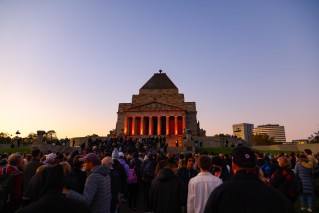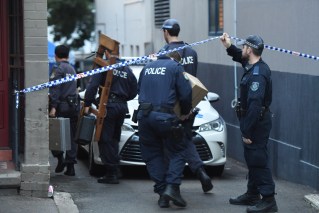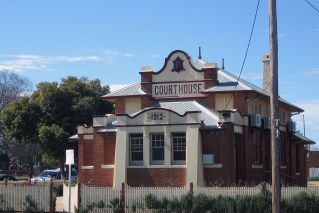Australia needs to better examine and understand the “serious threats” of right-wing extremists using social media, according to a federal politician and anti-terror expert after the violent assault on the US Capitol by Donald Trump supporters.
It comes as federal MPs further complain about social media companies removing or restricting Mr Trump’s accounts, decrying what they claim to be “censorship”.
The insurrection attempt on Capitol Hill, much of which was inspired by and organised on right-wing social media pages, has again shone the spotlight on how authorities should respond to extremist political actors.

The PJCIS will examine extremism, particularly on social media. Photo: Getty
Last month, the federal Parliament’s Joint Committee on Intelligence and Security (PJCIS) announced it would conduct a review into “extremist movements and radicalism in Australia”.
Prompted by calls from the Labor Party for the Parliament to examine rising concerns over right-wing extremism, the PJCIS inquiry will investigate “motivations, objectives and capacity for violence of extremist groups”.
The Australian Security Intelligence Organisation said recently that right-wing terror accounted for up to 40 per cent of its current workload, and that such an attack was possible in Australia.
PJCIS focus on social media extremism
Labor politician Dr Anne Aly, a globally recognised expert in counter-terrorism and a professor at Edith Cowan University before entering politics, is a member of the PJCIS.
She said last week’s Capitol riot was a reminder of the dangers posed by such extremism, and wants the inquiry to focus heavily on the role of social media.
“We know that social media plays a big part in the proliferation of right-wing extremist ideology, and that it’s used for recruitment and influence,” Dr Aly told The New Daily.

Labor MP Anne Aly. Photo: AAP
“There’s been a lot of research done on the use of social media by ISIS, who’re very adept at using social media to recruit and influence.
“We need work done to understand the use of social media by right-wing extremists in order to address the serious threats posed.”
The Capitol insurrection led to Mr Trump being permanently banned from Twitter, as well as being banned or heavily restricted on numerous other online services including Facebook, Instagram, Snapchat and TikTok.
The riots also saw Google, Apple and Amazon Web Services blacklist the growing social media site Parler, the host of much violent rhetoric about Democratic politicians and Trump opponents before and after the Washington DC incursion.
Parler bills itself as a home for conservatives who have been removed from other mainstream social media.
Few Australian politicians have public Parler accounts under their own names. Nationals MP George Christensen is a regular user, as is Senator Malcolm Roberts, while One Nation leader Pauline Hanson occasionally posts on her profile.
https://twitter.com/KKeneally/status/1348124817765978112
Labor’s Senator Kristina Keneally, the shadow home affairs minister, publicly called for Prime Minister Scott Morrison to “order Christensen off Parler”.
In post on his Parler page, Mr Christensen responded by saying “I’m not leaving, Kristina! Jog on!”
Dr Aly said Australia needed to better examine and understand how extremists use social media.

The pro-Trump mob invaded the Capitol building, egged on by the President. Photo: AAP
“The events in the US have demonstrated just how pervasive right-wing extremism can be on social media – not just to organise and co-ordinate action but also to spread false information and conspiracy theories after the fact,” she said.
“Conspiracy theories are used by all forms of extremist groups to discredit media reporting and to perpetuate their anti-establishment ideology.”
Nationals criticise social ‘censorship’
Treasurer Josh Frydenberg said he did not agree with the decision to ban Mr Trump from social media pages.
“Those decisions were taken by commercial companies but, personally, I felt uncomfortable with what they did,” he said on Monday.
Mr Christensen contributed to the debate by calling for Communications Minister Paul Fletcher to enact new laws to stop Twitter, Facebook, and YouTube from banning, censoring, suspending or fact checking users “for posting content which is lawful in Australia”.
Nationals leader Michael McCormack claimed removing Mr Trump from social media was “censorship”, and also backed Mr Christensen against criticisms over his Facebook posts.
The Member for Dawson has previously shared Facebook posts claiming “vote fraud” and “dodgy extra votes” in the American election.
In recent days, Mr Christensen shared a link to a story from a conservative blog, claiming the violent insurrection at the US Capitol was a ‘false flag’ by left-wing groups.
“I know that George Christensen’s heart is in the right place,” Mr McCormack said on Monday.
“Again, I say I’m not in favour of censorship. So if I’m not in favour of censorship for Twitter, then why would I be wanting to censor George Christensen?”









